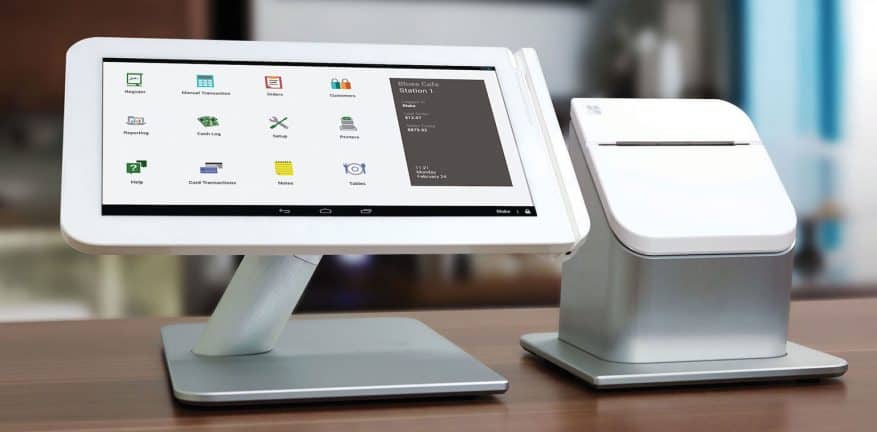Photo by East Payments Solutions
More than just an avenue for recording transactions, a point-of-sale system can simplify the way you manage your business and empower you to make quick data-driven decisions. To fully utilize this solution, though, it’s a must to partner with a point of sale system (POS) provider that understands the unique needs of your business and sector. This way, you can get a product that meets the specific requirements of your enterprise. At the same time, your provider can help you master the different ways in which your POS can be used to unlock your establishment’s potential for growth.
Once you’re able to fully integrate the POS system with your retail business, you can enjoy the following benefits:
Streamlined Sales Process
Integrating a POS system enables you to streamline your establishment’s sales process, improving its efficiency and reducing transaction times. With a user-friendly interface and barcode scanning capabilities, employees can quickly process customer purchases, thus minimizing wait times and enhancing the overall shopping experience. For example, a small boutique clothing store can use a POS system to effortlessly scan and process sales during peak hours, ensuring that customers do not experience long queues. A streamlined sales process like this leads to higher customer satisfaction and increased chances of repeat business.
Accurate Inventory Management
For retailers in general, maintaining an accurate inventory is crucial to avoid overstocking, stockouts, and unnecessary expenses. A modern POS system provides real-time inventory tracking, automatically updating stock levels with each transaction. This feature can be particularly beneficial for a small grocery store, for example. By using a POS system, the store owner can easily monitor the stock levels of perishable goods, such as fruits and vegetables, ensuring that they order fresh supplies just in time. Having such an ability is crucial to minimizing waste and maximizing profitability.
Improved Sales Reporting and Analytics
POS systems offer valuable insights into sales trends, popular products, and peak business hours, empowering retailers to make data-driven decisions. An electronics shop, for instance, can use the sales reporting features of a POS system to identify which product categories are driving the most revenue. Armed with this information, the management can adjust their marketing efforts and inventory stocking strategies to focus on high-demand items, leading to increased sales and profitability.
Enhanced Customer Relationship Management (CRM)
With a POS system’s integrated CRM capabilities, retailers can build stronger relationships with customers. Your business will be able to easily capture customer data, purchase histories, and preferences to offer personalized shopping experiences. A small bookstore, for instance, can benefit greatly from this feature. The establishment can use a POS system to keep track of customers’ favorite genres and authors and send them targeted promotions and recommendations. This personal touch can foster customer loyalty, encouraging repeat visits and word-of-mouth referrals.
Integrated Payment Processing
Incorporating a POS system with multiple payment options can be a game-changer for retailers. Customers today expect the convenience of being able to use various payment methods no matter if they’re shopping in-store or online. Your business can cater to a wide variety of preferences by accepting credit or debit cards, mobile payments, and digital wallets through its POS system. This flexibility not only enhances the customer experience but also expands your potential customer base, as some customers may choose to frequent businesses that offer their preferred payment method.
Reduction of Human Errors
Using a POS system to conduct transactions minimizes the likelihood of human errors in calculations and sales processing. This advantage can prove invaluable for retailers that value every sale. You can program your POS to automatically apply discounts and accurately calculate the final bill for customers. By depending on a system to do the job quickly and accurately, you’re reducing the risk of overcharging or undercharging while also ensuring seamless transactions and improving customer experiences.
Scalability and Integration
A scalable POS system is essential for retailers with aspirations for growth. An expanding business will need to add new products to its inventory, open more locations, or hire additional staff. Thus, it also requires a POS system that can accommodate these changes smoothly. If you’re planning to open a physical store on top of your online retail shop, for instance, then you need a POS system that can manage all inventory and sales centrally, even those from online channels. This integration allows your establishment to offer a seamless shopping experience to both online and offline customers, contributing to overall business growth.
Clearly, investing in a POS system is worth it for a retail business. The use of such a system can lead to increased efficiency, customer satisfaction, and overall profitability. Moreover, the scalability and integration capabilities of modern POS systems ensure that the investment continues to deliver value as the business grows and expands its operations.
By embracing these benefits and integrating POS systems into their retail operations, businesses in the Philippines can overcome challenges, remain competitive, and position themselves for sustainable growth in a rapidly evolving market.








